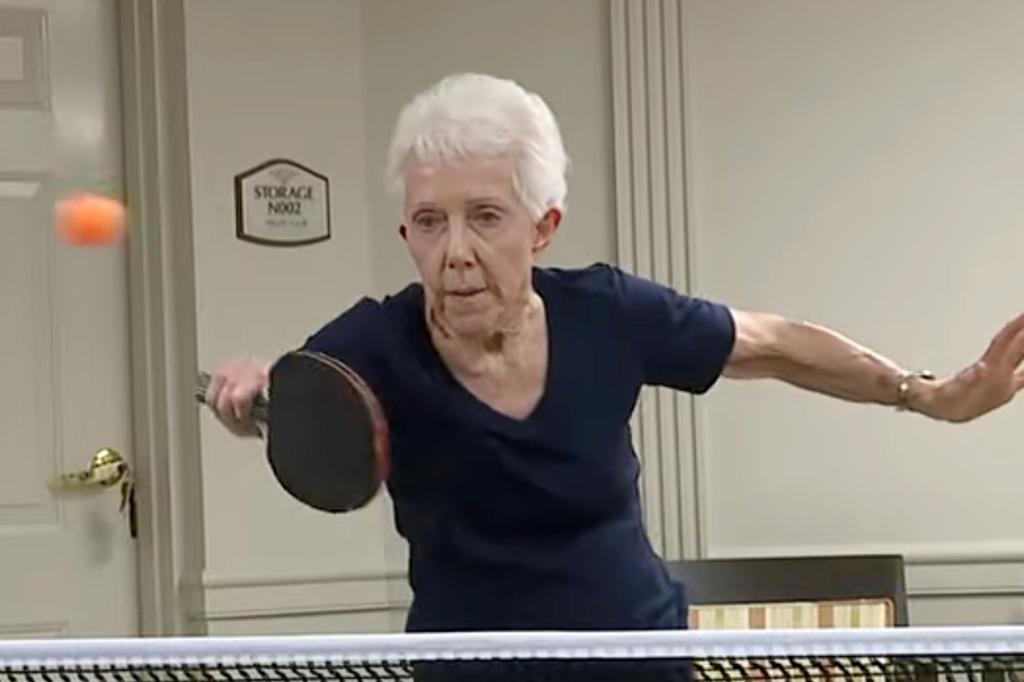
When Rachel Williams decided to learn how to play ping pong, the 89-year-old could barely hit a ball.
Three years later, the 89-year-old was making headlines in her local newspaper after placing seventh in the sport for her age group at the National Senior Games in Pittsburgh, Pa.
Not bad for a pandemic hobby.
Williams began playing as a way to stay active, after the fitness center at her senior living center in Lancaster, Pa. shut down due to Covid restrictions in 2020. She had heard table tennis was a good way to keep your brain healthy.
Her genius move — she bought a Zxmoto ping-pong robot for $200, allowing her to practice the sport at any level, while stuck in solitude.
“It was pricey, but I thought I was worth it,” Williams told the Wall Street Journal.
Research has shown that the brain works harder when playing ping pong against a robot, which won’t give body language cues to follow, or exploit.
Williams’ mechanical sparring partner can surprise her with up to 36 different kinds of serves, and has the ability to psych her out with backspins and sidespins.
Not that she wasn’t up to the challenge — the octogenarian had developed a keen interest in keeping her mind active by any means necessary, after watching her mother-in-law suffer from Alzheimers years earlier.
Seeing what the disease did to her loved one encouraged her to enroll in an Alzheimer’s research study at Johns Hopkins University, back in 2007.
There, she learned the role keeping physically active can play in keeping the mind in better shape. Her first stop, before ping pong, was tap dancing — which Williams says requires similar skills.
Gold medaling at the Senior Games last summer — “It was thrilling to play my heart out for hours on end with such terrific players,” Williams recalled — didn’t happen by accident.
didn’t happen by accident.
To get there, she stuck to her routine of playing six times a week — sometimes with a partner, other times with the robot.
In addition to playing the actual sport, there’s a whole list of other activities that help her stay in fighting shape — walking up to 45 minutes daily, exercising on the rowing machine at the gym, lifting, squats, and her other love, tap dancing, five mornings a week.
Williams even performs with her class.
“We do one act where we pretend to be old folks and hobble on stage with canes, then break into lively dance,” she joked.
And finally, unsurprisingly, Williams sticks to a strict, vegetarian diet, eating eggs and grains like quinoa and kamut for protein, plus loads of vegetables.
“I’m very focused on what I put in my body,” she said. “When friends push their candies and cookies, I tell them, ‘I don’t put sugar in my gas tank.’”
